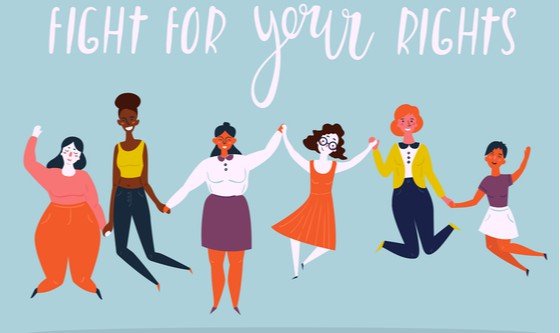
A History of International Women’s Day
From Women’s Suffrage to the #MeToo Movement, what strides have women made as we go into this year’s International Women’s Day?
Last year at the office, some colleagues thought it would be a great idea for women in the office to tailor make outfits from the same fabric, as a way to celebrate International Women’s Day. The human resource manager thought it would also be a good idea to have all the men in the office serve all the women in the office tea and lunch. We had an all-day buffet with cake to boot.
International Women’s Day (IWD) has now become a day with rituals and celebrations of its own akin to Mother’s Day. But however kind the gestures are to celebrate it, IWD is a celebration of something greater – the political, social, economic, innovative and cultural contributions of women.
In 1908, when the United States Socialist Party organised a meeting of 1,500 women seeking political and economic equality, there was a lot more at stake. These garment workers protested their working conditions; low wages and sexual harassment – which, over a century later, women still face. These protests went on for a whole year and in commemoration of them, 28th February 1909 was declared National Women’s Day.
Related: Do We Need An International Men’s Day?
The protests spread throughout Europe. In Russia, there was growing unrest in 1917. The country was teetering economically from the effects of World War I; there was no money or food, people queuing in breadlines for a chance at either with no jobs in sight. Women were the ones standing in those lines, predominantly, and with growing agitation, protests broke out on 8th March (23rd February in the Russian Orthodox calendar). These protests grew from women only to all workers across the country. And thus, IWD was born.
The workers demanded food, better living conditions and an end to autocracy. The Russian Tsar handed the throne over, bringing the Russian Empire to an end, and ushering in socialism and the creation of the Soviet Union.
This push by women to get the right to vote, popularly referred to as suffrage throughout the early 20th century, was a constant push for political inclusion for women across the world. Women were jailed and ridiculed for being ‘defiant’ and ‘unladylike’ for speaking up and demanding what was their birthright, their human right to vote and live decently without discrimination.
But it was only in 1975 that the United Nations recognised IWD as an international celebration. Two decades later, as from 1996, the United Nations set annual themes for the celebration. But globally, feminism lost its appeal.
It was in 2011 during the centenary celebrations of the first IWD that President Obama declared March of the same year ‘Women’s History month.’ This bolstered worldwide attention towards women and the social, economic and political gaps that still exist.
We have made a lot of gains. According to the 2018 Global Gender Gap index globally, gender parity in secondary education is almost met with 65% of girls and 66% of boys enrolled in secondary school respectively. 17 heads of state are women, and 60% of women have access to the same financial services as men. 42% of countries have women accessing land ownership – just as the men do.
But even as we continue to celebrate these gains over 100 years later, we still live in a world where sexual abuse and harassment are still challenges women face. Even with the #MeToo movement there is still a lot more we need to do. We still live in a world where 72 countries bar women from opening bank accounts. Girls still have to fight early marriage and it is estimated that it might take over two centuries to close the gender gap.
It may seem like a daunting task, but there is a lot to learn from the women who went ahead of us. Treat March 8 as a celebration. Celebrate the women in your life and community making an impact. Blast it loud! The more we share women’s stories, the more people will choose to see women as whole and deserving beings, wholly capable and fully entitled to equity on this planet.
To all the women who have gone before us and those coming behind us, Happy International Women’s Day. Let’s rock this world with our brilliance.
Related: Feminism: Is It All About Bashing Men?
Which women are you celebrating this month?
